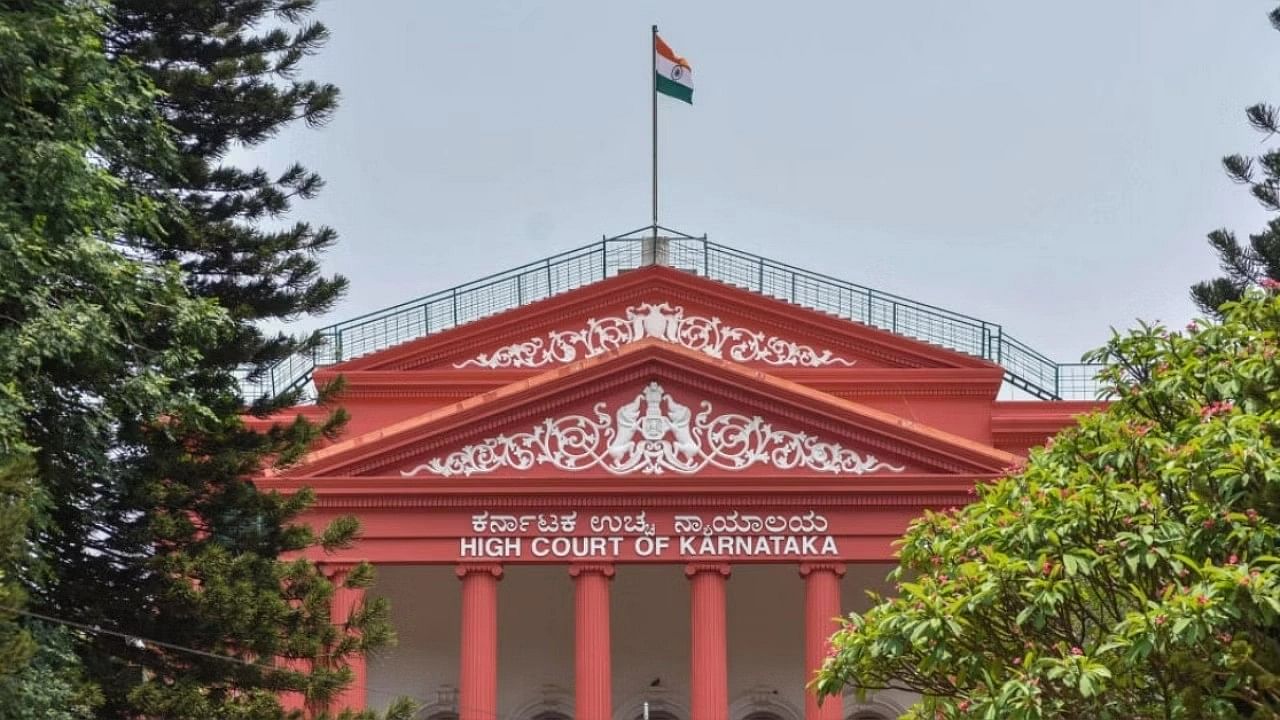
The Karnataka High Court.
Credit: DH File Photo
Bengaluru: In a win for the daughters of two construction workers, the high court has ordered the Karnataka Building and Other Construction Welfare Board to pay overdue educational assistance.
The court criticised the board for its cavalier approach and directed it to pay Rs 35,000 and Rs 30,000 to support the LLB and MBA courses of the two students.
Justice M Nagaprasanna further asked the board to pay Rs 25,000 each as litigation cost and a daily fine of Rs 500 for any delay in future payments related to educational assistance.
The students approached the court along with their parents, claiming that they had submitted applications for educational assistance when the notification dated August 13, 2021, was in operation.
The authorities did not act upon it then. Thereafter, on October 30, 2023, a new notification was issued, and the educational assistance amount was reduced by the state government from Rs 30,000, Rs 35,000, respectively, to Rs 10,000 and Rs 11,000.
The court was informed that around Rs 8,200 crore collected as cess is lying with the board.
According to the board, the amount can be released only as per the 2023 notification. The court observed that the petitioners had a right under the notification dated August 13, 2021. However, this was eroded by sheer callousness on the part of the board by not passing any order on the notification and brought the petitioners under the ambit of the new notification.
"The callousness of the officers manning the board cannot place the rights of these poor construction workers in limbo,” Justice Nagaprasanna said.
"It is rather appalling that the officers manning the board fail to recognise the cup of woe of these poor families who make their living on a day-to-day basis. The amount sought would be far less than the traveling allowance or a dearness allowance that a person on the desk would earn, needed or not needed.
"The lamenting of the daughters of these poor construction workers has reached the doors of this court seeking a mandamus. The board ought not to have driven them to this unnecessary litigation, as the brunt of the litigation cannot be borne by the poor or the construction workers — the petitioners in the case at hand.”